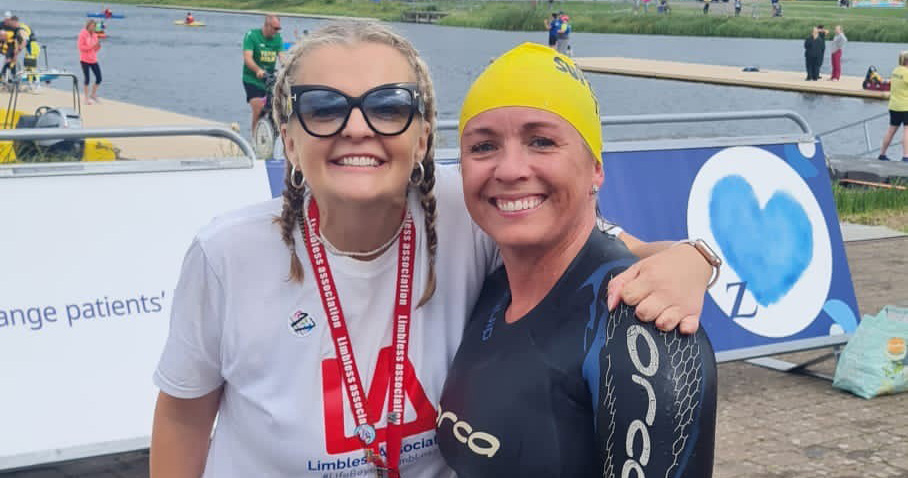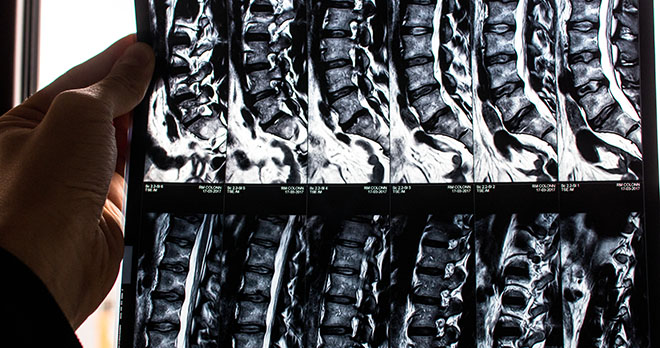How we can ensure lessons are learned following a death – Interview with INQUEST
In a recent episode of our podcast Ali Cloak from our Inquest and Fatal claims team was joined by Deborah Coles and Aniesha Obuobie of INQUEST.
They talked about the importance of learning lessons following deaths, the challenges in implementing care improvements , and how their No More Deaths hopes to secure systemic change.
This episode transcript has been edited in places for legibility and ease of reading.
Ali Cloak: Can you tell us about INQUEST and the work that you do?
Deborah Coles: For over 40 years now, INQUEST has worked alongside bereaved people following state related deaths. So by that we mean deaths in police, prison custody, immigration detention, mental health settings, learning disability settings and other deaths that raise questions about state or corporate accountability. We work alongside families to help them access legal representation at inquests, and then use the evidence that comes out of the legal processes to try and effect meaningful change and to stop deaths happening again.
Ali: Inquests serve an important public function, as you’ve touched on there. It involves identifying how deaths occur and coroners are also obliged to prepare a Prevention of Future Deaths report known as a PFD report, when they become aware of circumstances that mean there’s a risk that future deaths will occur. On paper that sounds reassuring, but in my experience the reality is pretty different and I’m interested in your views on the current system of PFD reporting and the pros and cons of that.
Deborah: One of the really welcome things that the Coroners and Justice Act brought into force was making it mandatory for coroners to report any matters of concern in a PFD report.
So, what INQUEST and lawyers for families try and do is to maximise the preventative potential of inquests, because what we know from the families that we work with is that they want the truth, they want an acknowledgement of failings and those responsible held to account. But more than anything they want to try and stop another family going through the process and so a Prevention of Future Death report can play a really significant role in safeguarding lives in the future.
It has life-changing potential if properly utilised and that’s where INQUEST have identified a real accountability gap in the fact that until very recently there was not even a website where you could find PFD reports. Now there is a judiciary website that publishes those reports. But what we’ve noted, and also the work of Georgia Richards and her Preventable Deaths Tracker site has highlighted, is that sometimes organisations to whom these reports are made don’t even respond. There’s no opportunity to chase up those who don’t respond and the responses that public authorities often give are really ‘cut and paste’, limited in detail, or they just simply repeat and rehash the very policies that have often led to the death in the first place. So the opportunity to actually find out what has happened on the ground, and to assess how these PFD reports have impacted on policy and practice, is extremely difficult.
Ali: That definitely rings true with my experience, where a coroner prepares a PFD report at the end of an inquest and the family take some comfort from that initially and then receive a really superficial response or a rehashing of evidence that they’d already said in the inquest. There are no real teeth to enforce the changes which the PFD report seeks are made.
Deborah: We are an organisation that has a lot of knowledge and expertise going back decades, and there is a great sense of frustration seeing the same issues being repeated time and time again. We have this body of PFD reports effectively saying the same things. We have public authorities saying those very hollow words to families that lessons will be learned and we simply don’t see the change on the ground. Which is really the motivation for us setting up the campaign around the National Oversight Mechanism.
Ali: And what central arrangements are in place at the moment for these reports to be reviewed?
Are you aware of any organisations that undertake this analysis themselves, for example, any prisons or advisory groups that do these thematic reviews themselves to try and learn from them?
Deborah: I think it’s fair to say that in the research that we have done around PFDs, any work that people have done is – which is relatively rare – is quite often ad-hoc, piecemeal.
There is no central oversight of the PFD reports, their follow up, and there’s no thematic analysis. Interestingly, before the Coroners and Justice Act came into force, the Ministry of Justice would produce something called the Rule 43 Bulletin (Rule 43 is the name by which PFD reports were previously known). The rule 43 Bulletin, although limited, was at least something in bringing together some of the thematic areas that these reports covered. But at the moment there is nothing other than the judiciary website or the work that INQUEST does around specific areas. For example, we’ve produced reports drawing out the themes from PFDs into deaths in prison, into mental health, into policing. Certainly there is no independent body that is systematically collating, analysing and tracking what action has actually been taken.
Ali: Do you have any examples?
Ahiesha Obuobie: Recently we made a submission to the Justice Committee on their follow up inquiry into the coroner service and two of the examples we gave were of casework that we have seen trends in. That was epilepsy deaths in prison. In recent years we have seen 18 prison deaths that have been epilepsy related and a repeated issue was surrounding cell sharing risk assessments and the fact that if someone going to prison has epilepsy, they should be sharing a cell. We have seen a few cases where those risk assessments were not completed properly and that led to people being put in cells by themselves. When they had issues related to epilepsy, there wasn’t someone to monitor or to oversee that and, unfortunately, they died.
We have seen a trend of PFDs where this or similar issues has been mentioned, and yet deaths still occur. We have been told a lot by bereaved families that it is really traumatising for them to go through the inquest process, come out with a PFD report, struggle to get a response from the public body or the authority and then to hear of another death in the same circumstances. It is often in the same prison so that affects not only the family who have lost someone, but the family that went through that process, knowing that no changes have been put in place and that this will happen to other families.
Another example we had involved two housing cases under Leeds City Council. One was in 2011 and the other in 2022. It involved two tower blocks where two young children died after falling from a window. At the first inquest in 2011, the coroner made strong recommendations to the Council to fit locks on windows and assess flats where there was a high risk of a child falling from a window. Despite those recommendations, 11 years later there was another death in similar circumstances at a neighbouring tower block.
One of the issues we have and led to our campaign is that the recommendations are being made often and, if they were implemented, lives would be saved. But they are not, and it is a struggle to even get a response or a reason why.
Ali: It is heartbreaking to see these avoidable deaths being repeated. What do you think the reasons are as to why some providers are not responding to the PFDs and why recommendations are not being seen through? What are the main barriers?
Aniesha: I can answer in relation to Grenfell, although it is quite hard for us to understand what the barriers are.
Grenfell was a public example. During the inquiry there was lots of evidence about the Lakanal house fire that had happened in 2009. Six people died and there was a Rule 43 Report where the coroner made clear and strong recommendations. Had those been implemented, it is likely that Grenfell would not have happened. Now we’re seeing the Government still not implementing key recommendations around personal emergency evacuation plans. If they were to be implemented, we know that it would save a lot of lives in case of another fire and reduce the risk of disabled residents not being able to evacuate.
The Government had a consultation and proposed a different procedure that they would implement which is lesser and does not protect people in the same way. But their response has been around resources and proportionality. That is the kind of thing that we are told but from our perspective and those who have lived through that experience, including bereaved families, we have seen the worst-case scenario where lives are lost and that has happened twice now. We have also seen other house fires that have had the same cladding or evacuation issues and so actually to implement them would not only save lives but would be a better use of resources
It is not clear why these things are not implemented and not only at the cost of lives but the cost of going through these processes again. For example, the Grenfell Tower inquiry cost millions of pounds. That is a process that could be avoided if the new recommendations that have been made are implemented.
Deborah: What we saw during the Grenfell inquiry was the contempt that was shown towards the coroner’s recommendation. There is something about the lack of value that some of the organisations pay towards the inquest system.
There are still many problems with the inquest system but where you have a properly conducted inquest, where a family are legally represented, and where you have a coroner who is trying to maximise the preventative potential of the coroner’s inquest only to see organisations either fail to respond or to respond by repeating the policies that resulted in in the death in the first place. It shows the lack of attention that is given to the to the coronial system.
There is also a problem with the delays from the inquest and the death itself. You see organisations more concerned about reputational damage management rather than seeing the inquest as an opportunity to look at what went wrong, what improvements could be made, and how can they learn as organisations from the evidence that has come out of that inquest?
What then happens is organisations argue against a PFD report on the basis that ‘that was then and in the interim we have made these changes’ and certainly we have seen as part of our research websites of lawyers who represent trusts and public bodies advertising their firm as a way of avoiding a PFD report. That’s an adversarial approach whereby they will argue against a report that not only could have a bearing on local learning but also national learning.
We must ask questions of those public bodies who instruct lawyers to understand what is their real objective? Is their real objective reputation management or is there an objective learning and hope that this process will prevent deaths occurring in the future? There are no real repercussions if they do not implement something, and this is another reason why changes aren’t implemented.
Aniesha: A PFD report is only written where the coroner believes there is a current and ongoing risk. So basically, at the end of the hearing, as it usually is, if they’ve been persuaded, even if it is just with evidence that’s been produced in the last week before that hearing saying that suddenly all these steps have been taken.
I have seen it where a coroner is persuaded that they don’t need to write a PFD report because they have a statement filed from the organisation with details of changes made and the family are left thinking “they’ve had four years since the death or two years since the day of the death, and this has only just been produced now. We have no evidence that these things have been done and are being audited to see that it’s embedded”.
There is another hole in the system, that the reports are only written by those who haven’t already tried to fix it or already said they’ll fix it. Then there is less accountability for those bodies because there isn’t a PFD report published that highlights the issue. Having this evidence dropped at the last-minute saying changes have been made is frustration for the families we work with. It’s clear that the purpose is for the inquest, because they had so long beforehand to do all these things or to have involved the family but they haven’t.
Deborah: It goes back to my earlier point: it undermines the preventative potential at a national level. Such as where a coroner is persuaded not to write a report about a particular mental health setting or a prison, when in fact the same systemic failings that resulted in that one death could be happening across other prisons or other mental health settings. The other problem with that is the only way that you will then know changes haven’t been made is where a similar death occurs.
There is nobody that is charged with following up what has happened following a death. In cases where coroners don’t make reports, even where there’s a very critical inquest conclusion, those recommendations aren’t centrally collated.
So you could go through an inquest with evidence of serious systemic failings. A body says, “we dealt with all of this” and there’s no way of testing that in practice.
Ali: I have some examples where a coroner, just by chance, has been aware of similar issues with the same provider and then they made a much bigger deal out of it and it was much harder for the trust or public body to persuade the coroner that the issue is under control because it clearly isn’t. That tends to happen by luck rather than the system ensures it happens.
Deborah: We speak to coroners regularly and we try and make them better aware of how important these reports are to families, let alone the public interest.
I also think there is a lot of frustration for the coroners because they don’t have the power, or indeed the resources, to follow up what happens to these reports and it’s not their role to do so. There is clearly an accountability gap where you often have a meaningful report from the coroner that outlines all the concerns that have come out of the inquest.
However, there are no sanctions for not responding to those reports nor for giving a ‘cut and paste’ response, which is something we see in our work. It is then very difficult to test the effectiveness of these reports because there’s nobody tracking or follow up.
The system is failing both families and public interest, because this is about trying to safeguard lives and it puts everybody’s lives at risk if that learning is not being harnessed and acted upon.
Ali: Definitely and I think earlier you touched on the institutional indifference that we sometimes see – and there are good examples and we do have positive, reassuring experiences where changes are made from the inquest process and families do see solid, robust positive changes made that will make a massive difference and stop others going through the same. But, naturally, we tend to focus on the others because that’s where the campaigning needs to be done.
The institutional indifference is definitely something that comes across and the worst offenders are those that become most immune to further recommendation because they’re enured to criticism as it happens fairly regularly, particularly where there are resourcing or capacity issues. There is a practical difficulty for some of these bodies in bringing about these changes where there isn’t the money to do it, although it isn’t always purely down to money. That is obviously a big part of it, when it goes to numbers of people on the ground or systems being changed.
Deborah: You are right. It is important that we have examples where reports have led to meaningful change, which is why it is so important that organisations explain. If there isn’t money available to do the change, that should be made very clear because then this is an issue of resources.
Using mental health PFD reports as an example, you will quite often see coroners raise concerns about resources, particularly issues where people are sent miles away from home because there isn’t the bed capacity in their local area. Those are important issues to have responses to because it is then about political will and where Governments put their resources and spend their money.
It is also important to highlight that these reports can and do make a difference. The problem is that in our experience we see that over 400 reports are made a year and there is a failure to properly analyse and draw together thematic areas. The risk then is that the reports end up on a shelf somewhere and that’s a frustration that lawyers, families, and INQUEST all share.
Ali: Earlier you touched on Dr Richard’s website, the Preventable Deaths Tracker site, which is the first and only open database of all of the coroner’s PFD reports in England and Wales. Although there is a judiciary website where they are published, it is rudimentary and difficult to navigate so the chance of someone pulling together meaningful data of it is really low.
The Preventable Deaths Tracker website seeks to cut through that and it is an impressive website that allows you to filter by trends, geographical area, or a particular coroner and see how many reports are written, whether there’s a response, and access copies of those documents. It’s an impressive tool, but I think the public would be surprised that it’s managed by a small team with no core funding, largely relying on donations, and it isn’t part and parcel of the system that is already in place. It is a bit baffling that all those reports are sat there on a shelf and there is just no follow up, other than the work that’s being done by organisations like INQUEST and the Preventable Deaths Tracker website.
The Preventable Death Tracker website cites that less than 2% of all inquests have a coroner’s PFD report written which is less than 1% of all avoidable deaths. It is clear that better management of PFD reports wouldn’t be a total solution even if that system was working optimally, because it’s still only a small proportion of the estimated overall avoidable deaths.
Ali: What are your plans and what are INQUEST calling for in terms of solving the bigger picture?
Deborah: As you pointed out, the Preventable Death Tracker website is important and we see it complementing what we’re calling for, which is a National Oversight Mechanism to address the accountability gap we’ve talked about in addition to the lack of transparency by public bodies and others in implementing and acting on coroner recommendations.
We’ve also extended it to include reviews and inquiries that follow state-related deaths, because we recognise that there is a body of learning that comes out of the different systems. Our proposal is for a National Oversight Mechanism that would firstly collate, on a publicly available database, all recommendations following post-death processes. It would specify whether an organisation has responded, whether they’ve accepted or rejected any of the recommendations. If those are tracked then deaths under similar circumstances can be identified, which is really important.
The National Oversight Mechanism would then be able to categorise recommendations on a range of areas such as types of death, different demographics and protected characteristics, or by detention setting. This would be an important hub for lawyers, coroners, public inquiries, researchers, and the public generally. From the collated information it could then analyse and report on issues, emerging themes, and patterns. This would fill that information deficit we have. We would then see that analysis feed into an annual report made to Parliament. This would allow greater Parliamentary scrutiny, better buy-in on the importance of the reports and improve the learning that can be collected from them.
Then there would be follow up which is important because what we have identified is there is no other independent body doing this. Issues could be escalated to Parliamentary committees. We envisage using select committees but also following up specific areas of concern with, for example, the Crown Prosecution Service, the Health and Safety Executive, the Equality and Human Rights Commission. This would ensure that there was better learning, prevention, transparency, and then of course accountability, because this is about trying to safeguard life.
We have given evidence on the National Oversight Mechanism to Parliament, two Parliamentary Committees – the Justice Committee as well as the Lords Committee – and there is surprise amongst Parliamentarians when they learn that there is no system for monitoring what comes out of these processes.
This mechanism has come from our own frustration over many decades and conversations we’ve had with lawyers, families, academics, and Parliamentarians. The accountability gap that exists means that there is a plethora of inquiries and investigations which result in powerful evidence about risks to life, and yet nothing happens.
Aniesha: It is interesting that people are often shocked that it doesn’t already exist and that we’re having to campaign for it. We’ve had a lot of support even before we had a proper campaign. It has been included in submissions by lawyers at the Grenfell inquiry and raised in inquests amongst other settings too. But since we launched the No More Deaths campaign last June, we’ve had a high number of organisations support us, from a broad remit including mental health, cladding issues, suicide, prisoners’ rights and more. That is testament to how important it is because it reaches different sectors and affects so many people.
Families, too, are supportive of it and drive most of the campaign themselves.
A lot of families tell us that they are the ones who chase for a response and that shouldn’t be the case at all. It shouldn’t be down to families themselves or organisations like us. There should be a body that exists for that purpose and what we’ve discussed is a mechanism that works.
Ali: What are the key steps or milestones for this to come into being? How does this come about in practical terms?
Deborah: Ultimately it requires resources to set up a secretariat to begin to do the work that we’ve already outlined. We know the Government are pressed for money but, above all, there is the human cost, and we don’t need to overstate the fact that failing to learn from deaths has an indescribable human impact on the families grieving the loss of a loved one who then engage in these protracted, distressing processes in the hope of trying to stop it happening to somebody else. So you have the human side, but you then have the financial cost because death, as we know, is expensive.
It is important to add that it would be a body that would be accountable to Parliament and therefore independent of Government. Potentially, it would be sponsored by the Cabinet Office, and we see it existing alongside other oversight bodies.
It would cover a broad range of areas and would work with the various other oversight, inspection and investigation bodies, but remain independent of them. It would also be accountable to bereaved families, and there would be a role of an advisory panel made up of bereaved families. It would have an annual report produced. It would be given powers to highlight concerns and follow those up with some of the informal enforcement organisations. Additionally, there would be a duty for organisations to respond to requests for information because one of the advisory panel’s key roles will be to scrutinise what has happened in response to these which would be underpinned by standards on combating discrimination and racism, because those trends are important for a body to keep oversight of.
Ali: What else can people do to support the campaign?
Aniesha: Organisations can also formally endorse the campaign, sign up and then share our resources and updates on the mechanism. Writing to your MP is useful but speaking to your MP in person can be even more effective.
Deborah: The contact with MPs is really important, because what we’ve noticed in this is that it is often the constituency MPs who speak to families who’ve been through these processes are made aware of these issues often for the first time.
Inquests exist to shine a light, particularly where the state has been involved and was supposed to keep somebody safe. A lot of MPs, when they learn about some of the challenges that families experience, are made aware of the importance of these issues and learning from deaths is an area that has not been given the proper attention or resource.
We’re really pleased to see just how this campaign has resonated with so many people. But as Aniesha said, people are often surprised that you have these legal processes but nobody has thought about the importance of the follow up, tracking and accountability.
Ali: It’s really frustrating that it’s not happening. Are we out of kilter with other countries in the way that we approach it?
Deborah: We’ve researched the issue by looking at various other jurisdictions and identified that Australia has a far more advanced system. They have an inquest system and they have an advanced structure in terms of following through and making reports and actions available to the public.
They also have interestingly used what they call independent monitors, particularly in response to where there have been multiple deaths.
Following some bushfires they had, an independent monitor was appointed and their role was to go on the ground and see what had happened in response to the recommendations made by coroners.
It was interesting because one of the monitors gave evidence to the Lords Committee that was looking at this area and they said that nothing beats interrogating what they say they’re doing by going and seeing it first-hand.
That to me echoed a lot of our concerns about the way in which organisations behave, particularly when they these sophisticated action plans at the last minute to say that they’re doing all these things. Who is there to actually test that? Who can demonstrate that that is being done?
Contact our specialist inquest and fatal claims solicitors to find out more about how the inquest process works.
Call now

Here to ensure that lessons are learned
When harm is caused, either to yourself or a loved one, you want to know how it happened and to ensure it doesn’t happen to others.
Read more from our Team Around the Client Magazine
View more articles related to Team Around the Client







